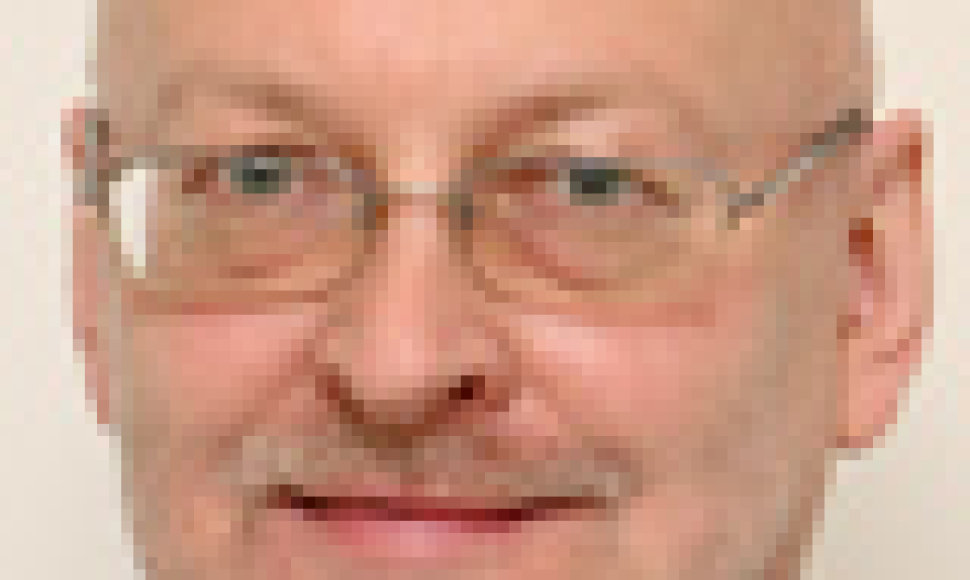After Kuolys gave birth to the Lithuanian List, the political situation as seen from the former heights of the President's approval ratings could be summarized thus: Just like three years ago, the President was surrounded by exalted fans professing adolescent love for her God-knows-what merits, so is she now blasted by critics who come from God-knows-where and breed party lists.
This is perfectly banal: So many self-important characters had hoped to conquer the thoughts and decisions of the politically inexperienced President. They failed. So now they are raging and simultaneously breeding. Also symbolic.
And yet, Kuolys' list came as a surprise to many. Because of the fact it was founded in the street. Even more so because one source bred two Lithuanian Lists – one by Venckienė's Drąsos Kelias and the other that of Kuolys. Does it mean that this season's breed of new apostles and their lists is so big that our national puddle will soon be cramped with them? Indeed, why does Venckienė need a Kuolys and his skills at intriguing if she knows by some divine revelation who is getting into parliament and who is not? Or perhaps a much cleverer scheme is behind it – Kuolys' list is intended for those “intellectuals” who might find Skučienė-style decorum repulsive?
Does Kuolys' list stand even a theoretical chance of making past the 5-percent trhreshold? In short, Kuolys and his Lithuanian List without Venciekė and Garliava – Lithuanian List without a political future!
On the one hand, the list is rather controversial. From those names of its founders that have been revealed one can presume that in addition to intellectuals-turned-radicals, it will contain perfectly respectable people, like historian and political scientist Kulakauskas, literary critic Daujotytė, headmaster of Vilnius Lyceum Jurkevičius and even Ohio University philosophy professor Mickūnas.
But who will be drawing the party line? The likes of Kulakauskas or Kuolys with his radicals? Take a wild guess. And even if the former were, wouldn't it turn out very curvy? Since the lot contains both true left-wingers and those on the right; and the world has yet to witness someone able to take away from everyone and give to everyone with the same hand.
dancing polka in Garliava and quoting Plato at the same time just to secure an opportunity to join the Seimas circle for four years, should be seen by true intellectuals like just as repulsive a perversion as anything from Hitler's or Stalin's times.
Doubts are hardly settled after one looks into the platform of Kuolys' list. The main points – returning civil powers to citizens and restoring genuine self-government, establishing justice as the foundation of the state, securing human rights and liberties, creating environment for a prosperous middle class, supporting small businesses, fighting social exclusion and poverty, turning Lithuania into a country where youth would want to live and create, laying foundations for an independent and creative society – could be found in every political party's programme without exception.
But how to do it? That is the question. Listing so abstract goals only shows that the value-based approach to politics – one that Kuolys and his fellow intellectuals defended in the beginning of this century before gradually becoming a club of loud-mouths – has been replaced with purely personal view: right now, it is profitable to defend, say, Greičius, and after that, the flood.
What is different about Kuolys' list and its proposals? In reply to a question on what his list shares with Venckienė, Dr Kuolys underscored that the basic ideas of the Lithuanian List and Drąsos Kelias coincide.
Bingo! Arguably, this should be seen as the main point in the programme of Kuolys' list. But that also raises some questions. I would be very interested to know if Ms Daujotytė, Mr Kulakauskas, Mr Jurkevičius share this view.
If, after all, they do, the next question is whether intellectuals, who identify themselves with extremist radicals and the mob, retain the right to call themselves intellectuals. How can an intellectual – whose calling it is to reflect on the the nation's situation – claim he or she is going to cure the ailing state, if at the same time she declares as her allies people who have spent several years upsetting the foundations of the legal state, cynically exploiting a minor in order to get into parliament, and, on top of that, praising a murderer in word and in writing?
Figuratively speaking, dancing polka in Garliava and quoting Plato at the same time just to secure an opportunity to join the Seimas circle for four years, should be seen by true intellectuals like just as repulsive a perversion as anything from Hitler's or Stalin's times.
Up until now, it has universally been the case that our intellectuals – unlike Czech Havel who retained his intellectual approach to things even after entering politics – lose any semblance to culture the moment they get into the political club and eventually end up talking to Martians.
In short, if a person as nice and highly respected by world's academic community as Mr Mickūnas indeed joins Kuolys' list, we might as well say a funeral eulogy to common sense in Lithuanian packaging with inscriptions of eternal values of liberalism.
In that case, let there be the “republic” rehabilitated by Kuolys and Venckienė, where the only eternal truth by these saviours prevails: the more they nurse the state, the more they discover paedophiles dissatisfied with their methods of treatment. And these enemies must be destroyed and buried in Putin-style smear, including Kuolys himself. Very symbolic.












